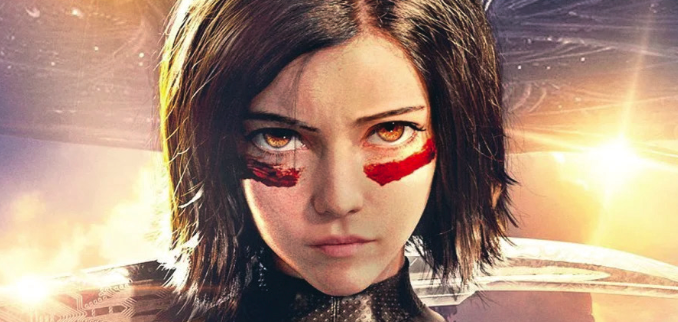“Alita: Battle Angel”: A Lackluster Blockbuster
After Guillermo Del Toro showed James Cameron the original version of “Alita: Battle Angel (1990),” Cameron took up the darling project for nearly two decades to create a new version. Finally here, “Alita: Battle Angel” was directed by Robert Rodriguez (of “Spy Kids” fame) and Cameron himself, and co-written with Jon Landau, also known for his work on “Avatar” in 2009.
Set in the distant 26th century, a doctor (Christoph Waltz) looking for spare parts in the decrepit Iron City, beneath the floating city of Zalem, finds a relic from before the apocalyptic fall: the core of a mysterious cyborg, whom he names Alita (Rosa Salazaar). The plot is pretty dense for such a relatively brief runtime of two hours, so I’ll leave it there.
I applaud the team for trying as hard as they did, but the movie doesn’t hit any real peaks. Yes, the action is decent—maybe even great at times—and there are a couple of memorable moments. It’s certainly a much better effort than 2018’s half-baked anime adaption “Ghost in the Shell.” “Alita: Battle Angel” deserves some points for being better, or at least being more faithful to its original movie. But that’s a pretty low bar.
A big part of the movie is its visuals. Like a lot of manga and anime in the 90s, the visuals take a riff on Ridley Scott’s mood-masterpiece “Blade Runner” (1984). The image of a post-apocalyptic future beneath an infinitely rich floating city certainly sucks you in and remains believable. If there’s one thing I can give Cameron a pass for, it’s visuals—like those in his other movies, they are incredibly impressive. Especially with regards to Alita’s CGI eyes, which replicate the original manga/anime art style. But still, why stop there? Making everyone stylized would have given the movie more charm in its gritty dystopia.
“Alita: Battle Angel” could have also benefited from some more complex scenes, as the stilted acting didn’t improve the nearly characterless dialogue. Most of the film’s dialogue seems forced, as if it is trying to fit as much of its source material in as possible. When it does step out of its shell, the dialogue is baffling, and makes some characters (especially Alita) a little serious and extreme.
I watched this movie when I was feeling under the weather, and I couldn’t tell if the pounding in my brain was from the bad pacing, the predictable, drawn-out washy scenes that couldn’t pull at my heart strings or the fever I was experiencing.
I praise Cameron and Landau on one front: though I have not seen the original anime or the OVA (original video animation), that this was based on, I wasn’t confused or overwhelmed by the movie.
The movie does attempt to be emotional, yet the difference between “Alita: Battle Angel” and films like “Titanic,” “Avatar” or “The Abyss” is that the latter movies have an emotional heart that “Alita’s antimatter-fueled core lacks. Like the dialogue, the romantic relationship in this movie seems rather forced and predictable, though there was some genuine chemistry in the father-daughter relationship between Waltz and Salazar. And it’s not helped by the music—none of the emotions are—which, like many modern blockbusters, tells you what to feel and yet lacks all of that feeling itself.
The movie is definitely a mixed bag, and I’d only recommend it if you need something mildly interesting to pass the time with. I watched this with a friend, and as we hung about in Eatery, waiting for the Cruiser to take us home, we talked about what we’d just seen.
“The budget was really big on this,” he said, and paused. “But it doesn’t make a movie.”
Contact Peter Hager at [email protected].







